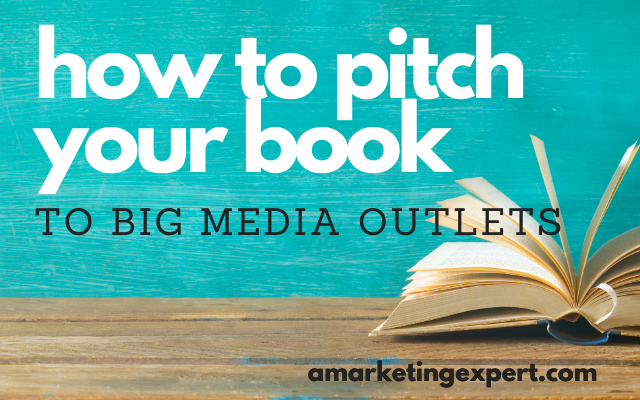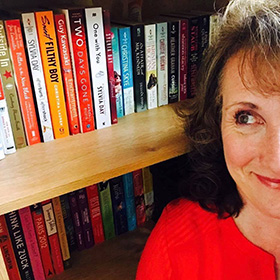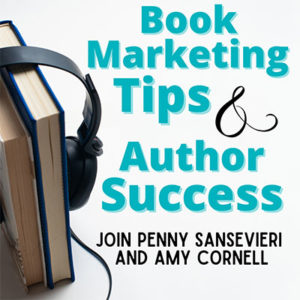I often get requests about how to pitch your book to big media outlets, such as national print or televised news. However the problem is that sometimes the folks requesting it aren’t always qualified to be on talk shows or to be giving interviews – it’s nothing against them or their book at all, it’s a matter of knowing what the media is looking for and what they ultimately want.
Remember to subscribe to our book marketing podcast to hear all our tips and recommendations for securing big media for your book!
When authors first contact us and I reach out to learn more about them and their book, this is something I see a lot. One example that really stands out is when someone writes a book wanting to give people advice, on anything, and they don’t have a professional background in that topic.
Focus on Your Credibility
Getting media attention as an author is a lot of work, especially if you plan to pitch your book to big media outlets. Even if you’re a recognized expert in your field media opportunities are not just handed to you. Now imagine how hard it’s going to be to demand big media exposure when you have no official background to support your platform. The first thing the media teams will want to know is what your credibility is to write this story.
There are some cases where this is less important. For instance, perhaps it’s a story about something you went through, like a memoir, something that requires no degree or qualifications. Or maybe you’ve built some grassroots business and you wrote a book about it, in which case that’s your platform. In that case, your credibility on the subject becomes less important.
Your Brand is Your Most Critical Feature
In today’s market, a lot of your brand is represented online. The content you put out, how successful your social media is, how many interviews you’ve done, and how many features you’ve been quoted in, are all important factors in building an authoritative voice.
If you have an impressive media page on your website then you’ve got more backbone to your message. We all start somewhere, but when you start at the beginning it’s important to have a realistic plan for building the credibility behind your brand.
Who Should You Pitch to?
Who you pitch your book to is almost as important as the pitch itself. You want to go after the exact right people for your story. If you’ve pitched the wrong person they aren’t going to put in the effort of forwarding it to the correct place. Instead, they’ll just delete your request. So you have to be clear and concise in your efforts.
Book producers are a great place to start, as are features editors, but it depends on what you’re talking about and what your story is. For example, if your brand aligns heavily with fitness, then a health producer or reporter might be the better place to start.
And don’t forget the online arms of all the media you’re considering approaching as well. Oftentimes the print and online editors are different. And while a magazine may only come out once a month, they’re usually looking to update their online content more often than that – so don’t forget to do your due diligence to figure out who your online media contacts should be.
How to Send a Pitch
The first step is a great subject line that people can’t help but open! You need to be really clear about WHY your book is a good fit for their audience and what makes your viewpoint unique or point out what you have to add to the discussion is fresh.
Something that’s really important is to make sure you don’t send vague pitches to everyone on the show. You have to be specific and pitch directly to the producer of the show, or whoever you are specifically trying to reach. Don’t blanket email everyone at the station because it’s bad form and shows a lack of professionalism.
Timelines & Follow-Ups
When pitching your book to big media outlets like national magazines or other print media make sure to be mindful of timelines. It’s a completely different world than online or on-air media. It’s important to pitch print media early for reviews or pitch later for story consideration.
I recommend some follow up after you pitch to a specific outlet. You could call, but be careful with that. I’ve done call-pitching myself and it can be very hard. A media person picks up the phone and says their name and you GO with your pitch.
If I call someone, I always start by asking if they’re on a deadline – in which case I either keep it super short or offer to call them back. But I don’t recommend calling unless you’re ready to go with your elevator pitch. Because as soon as you say “um” or falter in your message then you’ve lost the media person’s interest.
Start Small Then Build Bigger
My best recommendation is to focus on online media and local media first, as a way to build your resume before going after big fish. There’s more grace in starting small – it doubles as both great practice AND great exposure. It’s rare to birth a book and then go straight to national media.
And if you’re an author who feels inspired, or worried, or unsure about these things then feel free to contact us. We offer detailed, personalized book assessments that allow us to streamline your marketing strategies. We also make recommendations for taking your book to the next level or help you to flesh out any holes in your approach that can dramatically improve the return for your efforts.
Resources and Free Downloads
Listen to our book marketing podcast!
Download our FREE Blog Outreach Tracker!
Get more readers for your book
How to get your book noticed on Amazon
Please use the social share buttons below if you learned something from this post – your shares really help educate other authors, which raises the bar for publishing and gets more books in readers hands!






0 Comments